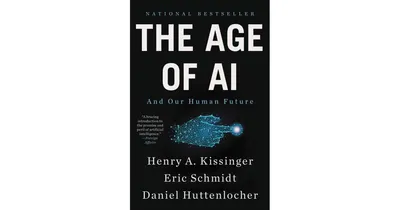Home
The Future of Syntax: Asian Perspectives an AI Age
Loading Inventory...
Barnes and Noble
The Future of Syntax: Asian Perspectives an AI Age
Current price: $130.00


Barnes and Noble
The Future of Syntax: Asian Perspectives an AI Age
Current price: $130.00
Loading Inventory...
Size: Hardcover
*Product Information may vary - to confirm product availability, pricing, and additional information please contact Barnes and Noble
Proposing a new approach to the study of language, this book argues for the need to consider syntax in context and to engage with a wider variety of perspectives that better reflect the modern world and the changes to our language prompted by increased cultural diversity, the prevalence of social media, AI, and more.
Referencing big data and drawing on a corpus of linguistic research, the book explores in particular the socio-pragmatic sensitivity and complexity within East Asian languages including Chinese, Japanese, and Korean, offering new insights that step away from traditional approaches to formal syntax. In tracing the history of syntactic theory, it highlights the shifts in our communication as we adapt to technological developments, and focuses in particular on the significant advances in AI. Arguing that traditional syntactic theory is no longer in keeping with real life communication, Jieun Kiaer scrutinises current approaches and raises key questions about the need for a more appropriate grammar better suited to the diversity of human language.
Referencing big data and drawing on a corpus of linguistic research, the book explores in particular the socio-pragmatic sensitivity and complexity within East Asian languages including Chinese, Japanese, and Korean, offering new insights that step away from traditional approaches to formal syntax. In tracing the history of syntactic theory, it highlights the shifts in our communication as we adapt to technological developments, and focuses in particular on the significant advances in AI. Arguing that traditional syntactic theory is no longer in keeping with real life communication, Jieun Kiaer scrutinises current approaches and raises key questions about the need for a more appropriate grammar better suited to the diversity of human language.


















